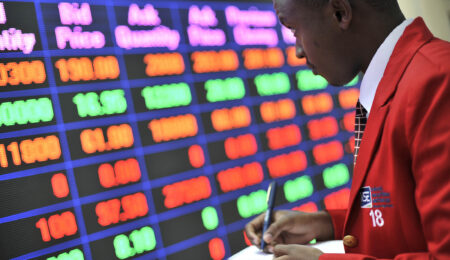Here are three major stories from Africa’s business landscape you should keep in mind this week.
A palliative for fuel subsidy
Last week, Nigeria announced its intention to utilize an $800 million loan it obtained from the World Bank as a form of palliative measure, as the nation gears up to gradually eliminate fuel subsidies. Originally obtained in 2021 to assist in financing Nigeria’s social programs, the loan will now serve to mitigate the impact of the Nigerian government’s decision to discontinue fuel subsidies, a move that has been met with a mixture of responses from the population. Supporters argue that the subsidies are costly and inefficient, while opponents fear that removing the subsidies will lead to increased fuel prices and further economic hardship for ordinary citizens.
Africa’s biggest economy has set aside $7.3 billion (3.36 trillion naira) to spend on petrol subsidies this year until mid-year, after which it has made no provision for the expense. This money costs more than its spending on healthcare and education. The new fuel subsidy palliative scheme is aimed at improving social safety nets, providing access to better healthcare and education, and promoting job creation in Nigeria. Meanwhile, receiving yet another loan from the World Bank has raised concerns about Nigeria’s rising debt levels and the country’s ability to service its debt obligations in the long run.
Another gloomy forecast for Africa
The World Bank has forecasted a slowdown in sub-Saharan Africa’s economy to 3.1% in 2023, below the global average growth rate. A report revealed by the bank attributes the slow economic growth to a variety of factors such as the ongoing COVID-19 pandemic, high inflation rates, rising debt levels, and low commodity prices. According to the head bank, the slow growth will affect poverty reduction and job creation efforts in the region.
The report further highlights that the sub-Saharan African region will face significant challenges in the coming years due to its limited fiscal space and increasing debt levels. The report urges governments in the region to prioritize policies that promote long-term economic growth, such as investment in education, infrastructure, and technology.
Tech funding in Africa slows
Data from Disrupt Africa’s latest report showed that funding for African tech startups declined by 57% in Q1 of 2023. African startups raised a total of $300 million in Q1 2023, a stark decline from the previous quarter, where they raised $1.1 billion. The decline was most pronounced in the fintech sector, which had been a major recipient of funding in recent years. Fintech startups only managed to secure0 $100 million in funding in Q1 2023, compared to the $800 million raised in the previous quarter. Other sectors such as healthcare, e-commerce, and education also saw a decline in funding.
The Big Deal also released its report recently, showing the same pattern — a 52% YoY decline. In March, investors made deals worth only $66 million. To put it plainly, we haven’t seen a March this bad since 2020 ($39.6 million—an outlier year due to the COVID-19 pandemic). It’s also a 91% drop from February when startups raised $696.3 million. It also shows that investors made fewer and smaller deals in 2023. In 2022, Nigeria and Kenya closed five and six rounds above $20 million, respectively, in Q1. But this year, none of these two closed any deal above $20 million. The decline in funding is attributed to political instability, economic uncertainty, and cautious investor sentiment.
ICYMI: Market roundup
The market opened for four trading days last week as the federal government of Nigeria declared Friday 7th April and Monday 10th April 2023 as public holidays to mark the easter celebration.
- The NGX All-Share Index depreciated by 2.28% from last week to close at 52,994.13 points. The top gainers were Nigerian aviation holding plc (20.99%), Axamansard Insurance plc (15.79%), CWG plc (14.94%), Linkage Assurance plc (11.63%), and Lasaco Assurance plc (9.09%). The top decliners were Eterna plc (-19.12%), Multiverse Mining and Exploration plc (-18.83%), Associated bus company plc (-16.22%), Royal Exchange (-15.38%), U A C N (-10.99%).
- The naira closed the week at N462.25/$ on Friday at the investor’s and Exporters’ window.
- Brent crude closed the week at $85.12, while US West Texas Intermediate (WTI) crude closed at $80.70.
- The global cryptocurrency market cap stood at $1.18trillion, as of 7 pm Sunday, the 9th of April Bitcoin stood at $28,131.46 a 0.56% increase from last week, Ethereum gained momentum by 4.13% over the week to trade at $1,856.27 and Binance coin increased 0.07%, to trade at $331.91.
- Shuttlers, a Nigerian shared mobility company that allows individual and corporate passengers to take rides on multiple bus routes via an app, raised $4M in a new funding round led by Pan-African-focused venture capital firm Verod-Kepple Africa Ventures. The round welcomed participation from follow-on investors, including VestedWorld, SheEquity, CMC 21 & Alsa, and EchoVC.
- Egypt-based Camel Ventures launched a $16 million venture capital investment vehicle, dubbed Camel Ventures for Investment I, focused on financing Egypt’s growing fintech startup ecosystem.





